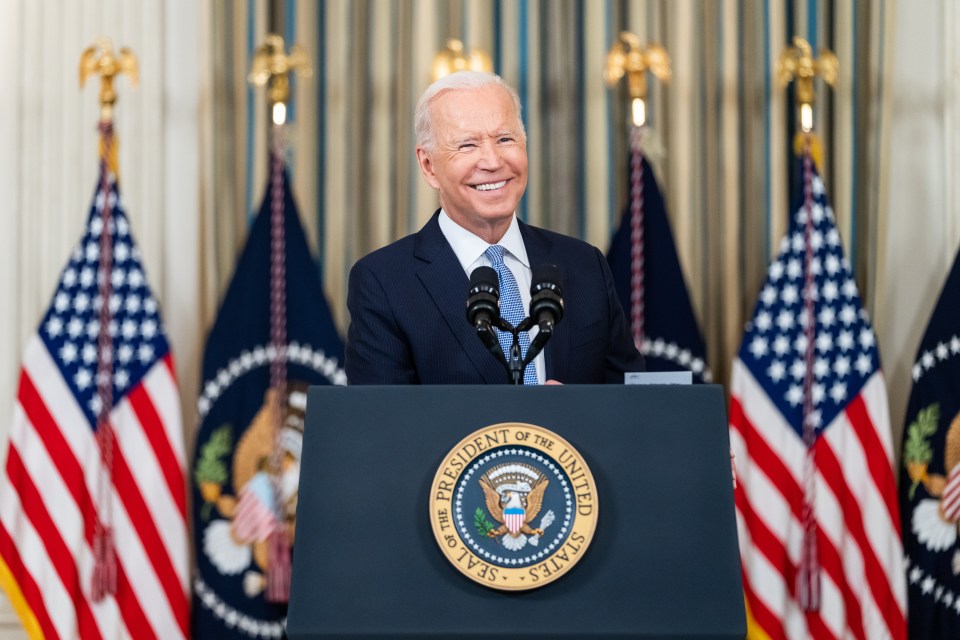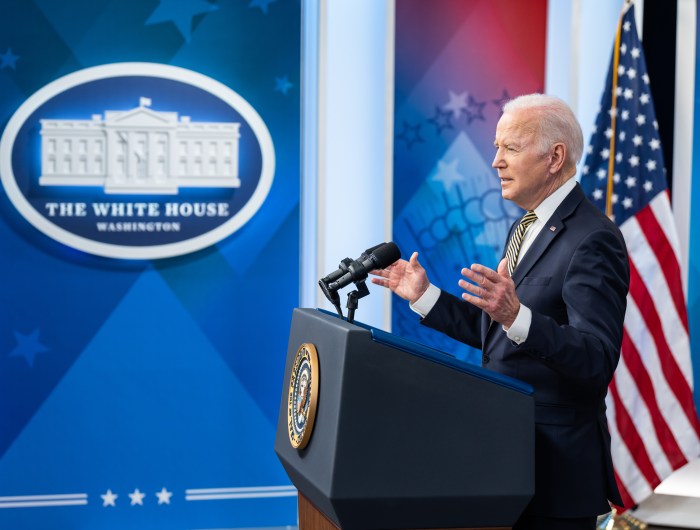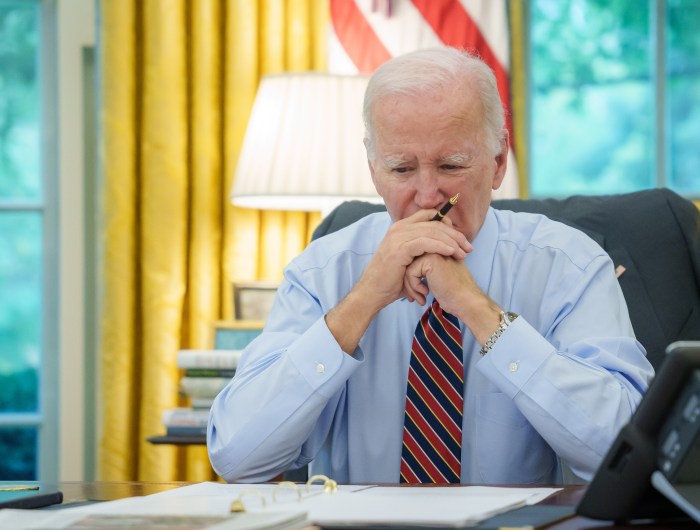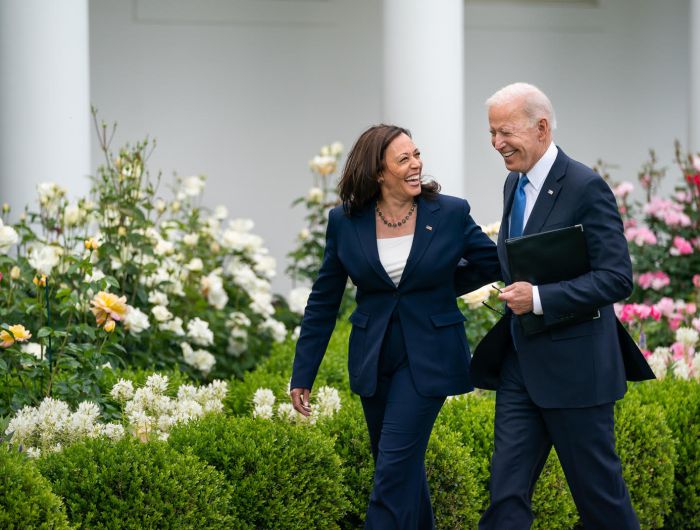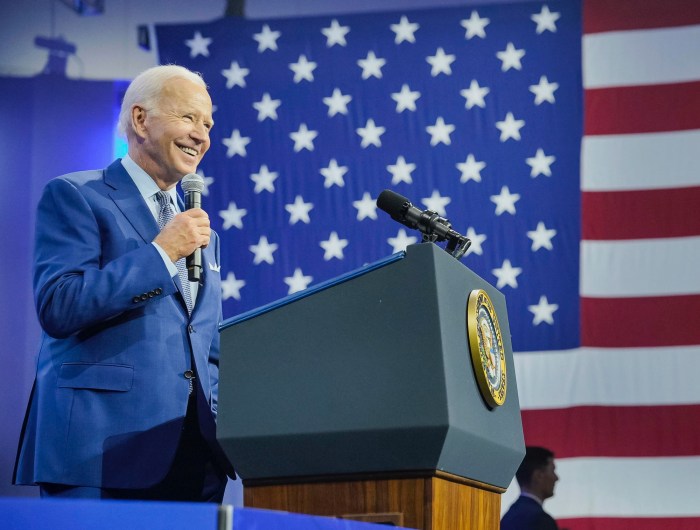White House Challenge
Saving Lives from Overdose
America’s overdose crisis impacts all of us. Families in small towns, large cities, Tribal lands, and every community in between are affected, no matter who they are, what they look like, or how much money they make. That’s why President Biden named beating the opioid and overdose crisis a key pillar of his Unity Agenda during his first State of the Union Address.
President Biden’s Unity Agenda focuses on issues on which all Americans can come together and make progress for the Nation. The Biden-Harris Administration has worked to strengthen not only the whole-of-government response, but also the whole-of-society response to address this public health and public safety crisis head-on.
The White House Challenge to Save Lives from Overdose is a nationwide call-to-action to stakeholders across all sectors to commit to save lives by increasing training on and access to life-saving opioid overdose reversal medications.
An overdose can happen anywhere, to anyone. That’s why the Biden-Harris Administration has made historic investments and taken historic action to expand access to opioid overdose reversal medications. But we need stakeholders in every community across the country to help ensure preventable deaths are avoided. Organizations and businesses—big or small, public or private—should be ready to help keep their employees, customers, and communities safe.
To help more Americans save lives, we are encouraging leaders to commit to train employees on opioid overdose reversal medications, keep the medications in first aid kits, and distribute medications to employees and customers so they might save a life at home, work, or in their communities.
Together we can save lives and beat the overdose crisis. Join us.
Learn about the Challenge
The White House Challenge to Save Lives from Overdose is a nationwide call-to-action to stakeholders across all sectors to commit to save lives by increasing training on and access to life-saving opioid overdose reversal medications.
To help more Americans save lives, we are encouraging leaders to commit to train employees on opioid overdose reversal medications, keep the medications in first aid kits, and distribute medications to employees and customers so they might save a life at home, work, or in their communities.
Everyone can do their part to beat the opioid and overdose crisis. We welcome commitments from organizations, philanthropists, local governments, and businesses—big or small and across all industries and expertise. Industries with employees at higher risk of overdose, likely to witness an overdose, or engaging high numbers of Americans may especially benefit from participating.
The Challenge’s fact sheet details actions that organizations and businesses are taking to save lives from overdose. You can make a commitment to:
- Train 100% of your employees on how and when to use an opioid overdose reversal medication
- Ensure an opioid overdose reversal medication is in every first aid kit at your worksites or schools
- Purchase and distribute opioid overdose reversal medication to a certain number of your employees and/or customers
We encourage you to think and act boldly. Consider commitments that:
- You can sustain until we beat the overdose crisis
- Will help support individuals and communities most impacted by fatal overdoses
- Replicate models that are already working in your industry
- Test new models that could be replicated by others
- Expand on what the federal government can do
Thank you for signing up to make a difference. See the White House Guide to Saving Lives from Overdose for more information on responding to an overdose, training employees, and purchasing opioid overdose reversal medications.
Learn about opioids and overdose
- Opioids are a type of drug used for pain relief and include prescription medications, such as oxycodone, and illicit drugs, such as heroin and illicitly-made fentanyl. Some opioids such as buprenorphine and methadone are used to treat opioid use disorder.
- Fentanyl is a synthetic opioid that is 50 to 100 times more potent than morphine and can be used medically to treat severe pain. However, it is also illicitly manufactured and sold through illegal drug markets. It may be sold as fentanyl, show up in other drugs to make them more potent, or be an unintentional contaminant.
- Some pills that look like commonly misused prescriptions are fake pills that contain potentially fatal amounts of illicit fentanyl.
- Note: The White House does not endorse any nonfederal entity, product, service, or publication. Links to websites and resources outside the U.S. Federal Government are being provided as a convenience and for informational purposes only; they do not constitute an endorsement or an approval by the White House of any of the products, services or opinions of the corporation or organization or individual. The White House bears no responsibility for the accuracy, legality or content of the external site or for that of subsequent links. Contact the external site for answers to questions regarding its content.
- The overdose crisis impacts all Americans nationwide.
- Emergency medical service providers respond to overdoses, administer opioid overdose reversal medications, and save lives daily. Find data about your state and county through the Nonfatal Drug Overdose Surveillance Dashboard.
- Opioids can cause someone’s breathing to slow down or stop. Opioid overdose reversal medications block opioids’ effects, restore breathing, and often save lives. There are currently two FDA-approved opioid overdose reversal medications: naloxone and nalmefene.
- There are many forms of opioid overdose reversal medications, including nasal sprays and injectable products, and they come in a variety of doses. All are effective in reversing opioid overdose, including from fentanyl.
- Opioid overdose reversal medications are available in all 50 states. Certain medications are available over-the-counter on retail pharmacy shelves, while others require a prescription from your doctor or can be obtained under a standing order from your local pharmacy.
- Consider asking your local health department or a harm reduction organization for free opioid overdose reversal medications.
- SAMHSA recommends that opioid overdose reversal medication be administered anytime someone is experiencing signs of opioid overdose, such as weak or no breathing, small pupils, and cold or clammy skin. Opioid overdose reversal medications can save the life of someone experiencing an opioid overdose and are not harmful to someone who is not experiencing an overdose.
- Familiarize yourself with your state’s Good Samaritan laws.
- For more information on how to identify and respond to overdose, see SAMHSA’s Overdose Prevention and Response Toolkit.
The National Safety Council has resources ready for employers that want to support their employees.
Biden-Harris Administration Actions
For the first time ever, the Food and Drug Administration (FDA) approved naloxone, a life-saving opioid overdose reversal medication, for non-prescription, over-the-counter purchase at grocery stores and pharmacies nationwide. In addition, the FDA is making it easier for harm reduction organizations to obtain naloxone directly from manufacturers and distributors to increase the public’s access to this lifesaving medicine.
The Biden-Harris Administration has invested historic amounts of funding in the State Opioid Response (SOR) grant program to make opioid overdose reversal medications available at no cost to residents of states and Tribes. Using SOR funds, states and Tribes have purchased nearly 10 million opioid overdose reversal medication kits and helped to reverse more than 600,000 overdoses. The Substance Abuse and Mental Health Services Administration (SAMHSA) is supporting states and Tribes with technical assistance, policy academies, and convenings to ensure SOR funds are used to help saturate hard-hit communities with opioid overdose reversal medications.
The Office of National Drug Control Policy (ONDCP), in collaboration with the Ad Council, launched a social media campaign, Real Deal on Fentanyl, to reach young people with critical messaging about the dangers of fentanyl and the life-saving effect of opioid overdose reversal medications. Its Spanish-language companion site, La Realidad sobre el Fentanilo, launched in March 2024.
The Department of Health and Human Services (HHS) offers the Overdose Prevention and Response Toolkit, which provides updated guidance on preventing overdoses and responding to opioid- or stimulant-involved overdoses, and offers population-specific guidance to people who use drugs, people who take prescription opioids, first responders, healthcare practitioners, and other audiences. This builds on many bold actions that HHS has taken to beat the overdose crisis, including updated federal regulations for opioid treatment programs to expand access to treatment for the first time in two decades, and the announcement that HHS grant funds may now be used to purchase xylazine test strips, where permitted by law.
Evidence-based harm reduction services, including the distribution of opioid overdose reversal medications, save lives. In President Biden’s FY2024 budget request, he called for an additional $100 million for harm reduction services—funding that will help distribute more opioid overdose reversal medications.
The Department of Health and Human Services (HHS) and the General Services Administration (GSA) issued new guidance that encourages all federal facilities to include life-saving opioid overdose reversal medications in their safety stations for use during overdose emergencies.
- The Department of Health and Human Services (HHS) and the Department of Housing and Urban Development (HUD) called on public health departments and health care systems to collaborate with housing providers, community development organizations, and other housing agencies to help expand access to opioid overdose reversal medications in the communities they serve. Housing providers play a critical role in ensuring that all public spaces have life-saving medications available and that more people are prepared to use the medications during emergencies.
- The White House and the Department of Education called on schools, colleges, and universities to have opioid overdose reversal medications on-site and ensure that students and employees are prepared to use these medications to save a life on or near their campuses.
